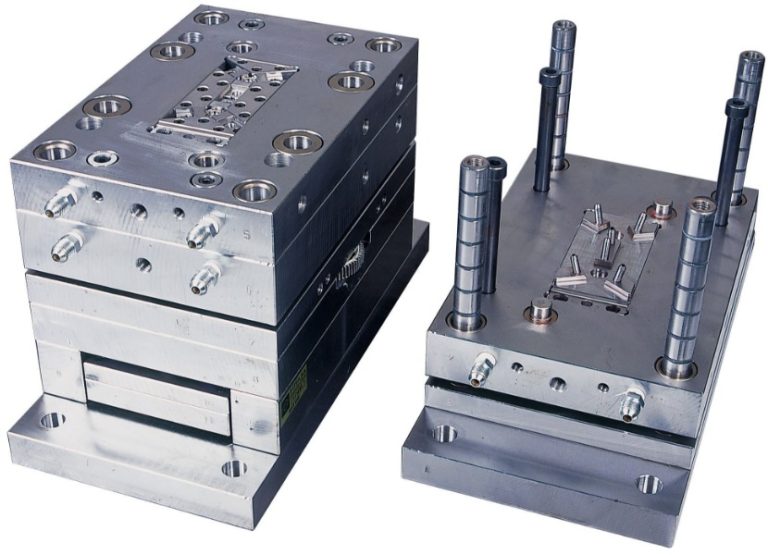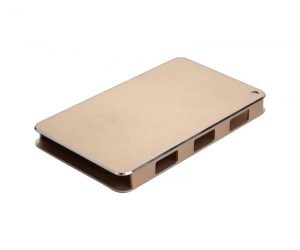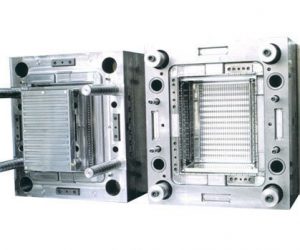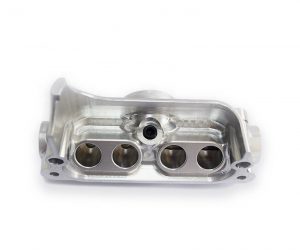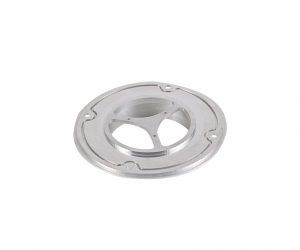Plastic injection molding has revolutionized manufacturing by enabling the production of precise and efficient plastic components for a wide range of industries. From automotive parts to medical devices, consumer electronics to packaging materials, injection-molded plastic products are a cornerstone of modern manufacturing. In this comprehensive blog post, we’ll explore the injection molding process, its advantages, the leading companies in the field, and the diverse applications of plastic injection molding.
1. Understanding Plastic Injection Molding
1.1 The Injection Molding Process
Plastic injection molding is a widely used manufacturing process that creates three-dimensional plastic components by injecting molten plastic material into a mold. Here’s a step-by-step overview of the process:
- Mold Design: The first step is designing the mold, which defines the shape and specifications of the final product. A mold can be created from various materials such as steel or aluminum, depending on the requirements.
- Material Injection: Plastic pellets are melted and injected into the mold cavity under high pressure. This allows the molten material to flow into every detail of the mold, ensuring precise replication of the part’s design.
- Cooling and Solidification: Once the mold is filled, the plastic is allowed to cool and solidify, taking the shape of the mold.
- Mold Opening and Ejection: After cooling, the mold opens, and the newly formed plastic part is ejected.
- Post-Processing: Depending on the complexity of the part, post-processing operations like trimming, finishing, or painting may be required.
The process is highly precise, and with the use of advanced machinery, manufacturers can achieve intricate designs and produce large quantities of plastic parts with consistent quality.
1.2 Benefits of Plastic Injection Molding
Plastic injection molding offers numerous benefits, which make it the preferred manufacturing method for many industries:
- High Precision: Injection molding can produce parts with tight tolerances and high accuracy.
- High Efficiency: The process is fast and capable of producing high volumes of parts in a relatively short period.
- Complex Shapes: It allows for the creation of intricate, complex designs that may be difficult or impossible to achieve with other methods.
- Material Versatility: Injection molding supports a wide range of thermoplastic materials, offering flexibility for different applications.
- Low Waste: The process produces minimal waste material, as unused plastic can often be recycled.
- Cost-Effective for Mass Production: Once the mold is created, the cost per part significantly drops for high-volume production.
2. Diverse Products Manufactured with Plastic Injection Molding
2.1 Automotive Components
Plastic injection molding plays a crucial role in the automotive industry, where it is used to manufacture a wide variety of parts. These include:
- Interior Parts: Dashboards, door panels, center consoles, and steering wheels.
- Exterior Parts: Bumpers, grilles, headlamp housings, and trim.
- Functional Components: Fasteners, clips, and under-the-hood components like air ducts.
The ability to produce lightweight, durable, and cost-effective components is key to improving fuel efficiency and meeting regulatory demands in the automotive sector.
2.2 Consumer Electronics
The consumer electronics industry relies heavily on plastic injection molding for producing sleek, durable, and high-quality parts. Common products include:
- Smartphone Casings
- Laptop Components
- Television Bezels
- Computer Mice and Keyboards
The design flexibility and robustness of injection-molded plastic parts are critical for consumer electronics, which require not only aesthetic appeal but also durability and functionality.
2.3 Medical Devices
Precision is paramount in the medical field, and plastic injection molding offers the ability to produce intricate, high-quality parts that meet stringent standards. Common applications include:
- Syringes and Injection Devices
- IV Connectors
- Surgical Instruments
- Implantable Devices
The use of medical-grade plastics ensures that the devices meet safety and regulatory standards, improving patient outcomes.
2.4 Packaging Materials
Plastic injection molding is widely used in the packaging industry to produce durable and visually appealing containers. Common products include:
- Food Containers
- Plastic Bottles
- Caps and Closures
- Trays and Lids
The ability to customize shapes and sizes makes injection-molded packaging ideal for a variety of industries, including food and beverage, pharmaceuticals, and cosmetics.
3. Leading Plastic Injection Molding Companies
The global plastic injection molding industry is thriving, and several major players have emerged as leaders, contributing to technological innovations, operational excellence, and high-quality products. Here are some of the largest and most influential companies in the field:
3.1 Severstal (Russia)
Severstal is one of the largest manufacturers in the world, focusing on automotive components, consumer goods, and industrial solutions. They are known for their advanced automation and quality control processes in plastic injection molding.
3.2 Formosa Plastics Group (Taiwan)
Formosa Plastics is a global leader in the production of both basic and specialty plastics, including the manufacturing of plastic products via injection molding. The company serves industries ranging from automotive to electronics, packaging, and medical devices.
3.3 Arburg (Germany)
Arburg is a well-known injection molding machine manufacturer that also produces precision components for industries such as automotive, medical, and electronics. They offer a wide range of machines for small to large-scale production runs and are renowned for their high-precision molding capabilities.
3.4 Plastic Omnium (France)
Plastic Omnium is a major player in the automotive sector, producing components like bumpers, fuel systems, and exterior parts through injection molding. Their focus on lightweight, durable solutions for the automotive industry has earned them a prominent place in global markets.
3.5 Milacron (USA)
Milacron is a leading manufacturer of injection molding machinery, but it is also involved in producing plastic injection molded parts for automotive, medical, and consumer goods industries. Their machines are known for precision, speed, and efficiency.
These companies lead the way in innovation, with cutting-edge technology, automation, and a commitment to sustainability and high-quality manufacturing.
4. The Thriving Plastic Injection Molding Industry
4.1 Number of Injection Molding Companies Worldwide
The plastic injection molding industry is vast and continues to grow. While it's difficult to determine the exact number of injection molding companies worldwide, estimates suggest that there are thousands of manufacturers across the globe. These companies range from small, specialized manufacturers to large multinational corporations, each serving different industries.
Factors driving the industry's growth include:
- Increased Demand for Plastic Parts: The demand for plastic components in sectors such as automotive, medical, electronics, and packaging is continuously rising.
- Technological Advancements: Ongoing innovations in injection molding technologies, including the development of faster, more energy-efficient machines, are contributing to market growth.
- Sustainability: Manufacturers are increasingly focusing on using recyclable materials and minimizing waste, which is driving sustainability initiatives within the industry.
5. Conclusion: The Future of Plastic Injection Molding
Plastic injection molding has established itself as a vital process in manufacturing, offering numerous benefits, including high precision, efficiency, and the ability to produce complex parts. With its applications spanning automotive, medical devices, consumer electronics, packaging, and more, plastic injection molding is at the forefront of modern manufacturing.
As the industry continues to evolve, innovations in material science, machinery, and process automation will further enhance the capabilities of injection molding. Leading companies in the field are pushing the boundaries of design and technology, ensuring that the injection molding industry will remain integral to the manufacturing world for years to come.
FAQs:
Q: What products are made with plastic injection molding?
Plastic injection molding is used to create a wide range of products, including automotive components, consumer electronics, medical devices, packaging materials, and more.
Q: Why is plastic injection molding so widely used?
Plastic injection molding offers several advantages, such as high precision, the ability to produce complex shapes, fast production times, and versatility in material choice, making it ideal for high-volume manufacturing.
Q: How many injection molding companies are there worldwide?
While it’s difficult to pinpoint an exact number, there are thousands of companies worldwide involved in plastic injection molding, from small manufacturers to large multinational corporations.
Q: What industries use plastic injection molding?
Plastic injection molding is used across various industries, including automotive, consumer electronics, medical, packaging, aerospace, construction, and more. Its versatility makes it ideal for applications in virtually any field requiring plastic components.
